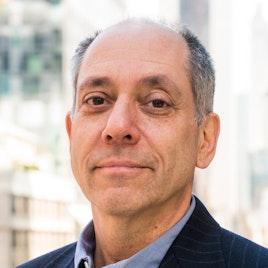Decriminalization of Drugs as HIV Prevention
By Daniel Wolfe & Joanne Csete
What stops HIV? The answer—issued this week by a commission of leading experts assembled by the UN—is an end to the criminalizing of drug use, needles, and personal possession of drugs.
Public health experts long ago realized that laws and policing were as important as clean needles, condoms, and antiretroviral treatment to stopping the AIDS epidemic. But the UN and UN-sponsored commissions-never famous for boldness-have stopped short of addressing drug possession laws, talking instead about stigma reduction, harm reduction, and "decriminalization of drug users." That changed yesterday, when UNAIDS head Michel Sidibe, UNDP Administrator (and former New Zealand Prime Minister) Helen Clark, Deputy Secretary General Jan Eliasson, and other notables gathered at the UN to salute the findings of the Commission on HIV and the Law, which included a clear call for reform of laws that make drug possession (rather than dealing) a crime.
The 145-page report by the independent commission, which included former presidents of Botswana and Brazil, senators, supreme court justices, and leading human rights and health experts from six continents, also called for the decriminalization of sex work, same sex relations, and HIV transmission, and urged developed countries to stop pushing poorer nations to buy expensive brand-name medicines. But the boldest call in the book was the recommendation to remove criminal penalties for drug possession. The commissioners highlighted the dangers of failure to reform drug policies, singling out countries like Russia and Thailand whose war-on-drugs approach they said helped facilitate HIV epidemics. The commissioners also urged the United States to remove its prohibition on federal funding for needle and syringe programs.
This is the second expert report to highlight the way bad drug policy accelerates the effects of HIV in as many weeks: the Global Commission on Drug Policy, including still more former presidents and dignitaries, released a report on June 26 documenting how the war on drugs has worsened the AIDS epidemic and calling for decriminalization of drug use.
Expert consensus, including that of politicians who have served at the highest levels of leadership, is now clear. Putting health first means not putting people in prisons simply because they use drugs. Let's hope the drug decriminalization message reaches every UNDP office, presidential palace, White House, and senate hall in the world, and is echoed from the podium at the upcoming International AIDS Conference in Washington. And even more importantly, let's hope real law reform happens. For the thousands languishing in prison who shouldn't be there, and for the communities and countries watching injection driven HIV epidemics grow to include non-drug users, this is one policy change that must not wait.

Until December 2021, Daniel Wolfe was director of the International Harm Reduction Development Program at the Open Society Foundations.
Joanne Csete is a researcher for the Open Society Public Health Program and Global Drug Policy Program.